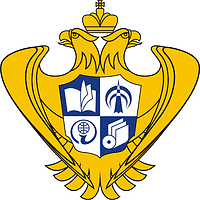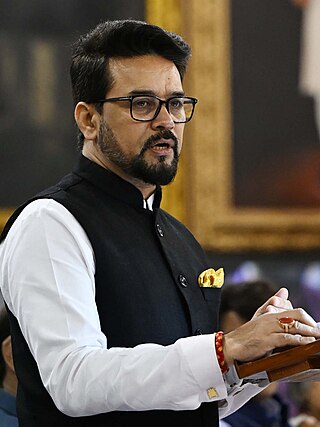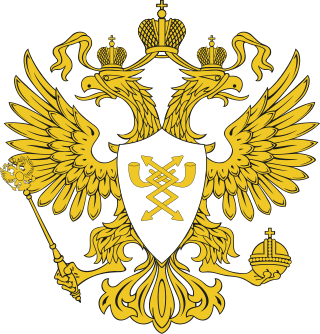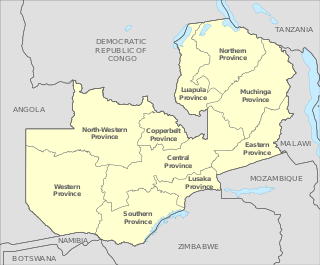Related Research Articles

There are several types of mass media in the United States: television, radio, cinema, newspapers, magazines, and web sites. The U.S. also has a strong music industry. New York City, Manhattan in particular, and to a lesser extent Los Angeles, are considered the epicenters of U.S. media.
Concentration of media ownership, also known as media consolidation or media convergence, is a process wherein fewer individuals or organizations control shares of the mass media. Contemporary research demonstrates increasing levels of consolidation, with many media industries already highly concentrated where a few companies own much of the market.

The news media or news industry are forms of mass media that focus on delivering news to the general public. These include news agencies, newspapers, news magazines, news channels etc.

The mass media in Ethiopia consist of radio, television and the Internet, which remain under the control of the Ethiopian government, as well as private newspapers and magazines. Ten radio broadcast stations, eight AM and two shortwave, are licensed to operate in Ethiopia. The major radio broadcasting stations include Radio Fana a private station, Radio Voice of One Free Ethiopia, and the Voice of the Revolution of Tigray. The only terrestrial (broadcast) television networks are government owned and include EBC and other regional stations. In keeping with government policy, radio broadcasts occur in a variety of languages including Amharic, Afaan Oromo, Tigrigna, and more. There are also many video sharing websites which are a popular way of getting information as well as entertainment in Ethiopia.

The South Korean mass media consist of several different types of public communication of news: television, radio, cinema, newspapers, magazines, and Internet-based websites.

The Federal Agency for Press and Mass Communications (FAPMC) was a regulatory state agency within the hierarchy of the Russian Government.

The mass media in Malaysia includes television, radio, newspapers, and web-based media such as bloggers. Many media outlets are either owned directly by the government of Malaysia or owned by component parties of the Barisan Nasional coalition which continuously form the government during Mahathir Mohamad's tenure until May 2018. Opposition parties during this era like the Islamic Party and People's Justice Party publish their own newspapers, Harakah and Suara Keadilan respectively, which are openly sold alongside regular publications.

Television, magazines, and newspapers have all been operated by both state-owned and for-profit corporations which depend on advertising, subscription, and other sales-related revenues. Even though the Constitution of Russia guarantees freedom of speech, the press has been plagued by both government censorship and self-censorship.
The mass media in Ukraine refers to mass media outlets based in Ukraine. Television, magazines, and newspapers are all operated by both state-owned and for-profit corporations which depend on advertising, subscription, and other sales-related revenues. The Constitution of Ukraine guarantees freedom of speech. As a country in transition, Ukraine's media system is under transformation.
In communication, media are the outlets or tools used to store and deliver content; semantic information or subject matter of which the media contains. The term generally refers to components of the mass media communications industry, such as print media, publishing, news media, photography, cinema, broadcasting, digital media, and advertising.

Mass media in Kenya includes more than 91 FM stations, more than 64 free to view TV stations, and an unconfirmed number of print newspapers and magazines. Publications mainly use English as their primary language of communication, with some media houses employing Swahili. Vernacular or community-based languages are commonly used in broadcast media; mostly radio.

Ministry of Information and Broadcasting is a ministerial level agency of the Government of India responsible for the formulation and administration of rules, regulations and laws in the areas of information, broadcasting, the press and the Cinema of India.

News is information about current events. This may be provided through many different media: word of mouth, printing, postal systems, broadcasting, electronic communication, or through the testimony of observers and witnesses to events. News is sometimes called "hard news" to differentiate it from soft media.

The mass media in Ghana, includes television, radio, internet publishing and newspapers.

Mass media in Burundi mainly consists of radio, television, and printed resources, with a project underway to improve internet access to the country. Most mass media in Burundi is controlled by the government, and access to international mass media is limited.
Julian Ernest Chetvynde Rogers MBE is a Caribbean broadcaster and journalist. He has worked as broadcast manager, TV and radio host and producer, publisher, trainer, lecturer, media consultant and public relations professional. Involved since the 1970s with the building of national radio stations notably in Barbados, St Kitts & Nevis, and Antigua & Barbuda, and part of "the original team set up to 'revolutionise' the media industry in Trinidad & Tobago with the rebranding of the Trinidad and Tobago Television Company (TTT) into CNMG", he has been called "the Caribbean man" and has established a reputation as one of the region's most respected media practitioners. His characteristic style as a broadcaster is to conduct biting interviews; one commentator refers to "the persistent journalistic exploits of a resurgent, sharp-witted and emphatic Julian Rogers".

The Ministry of Digital Development, Communications and Mass Media of the Russian Federation, also known as MinTsifry Rossii, is a ministry of the Government of Russia responsible for telecommunications, media and the post.
Mass media regulations are a form of media policy with rules enforced by the jurisdiction of law. Guidelines for media use differ across the world. This regulation, via law, rules or procedures, can have various goals, for example intervention to protect a stated "public interest", or encouraging competition and an effective media market, or establishing common technical standards.
Mass media in Malawi consist of several different types of communications media: television, radio, cinema, newspapers, magazines and Internet-based Web sites. Malawi also has a growing music industry. Media is either privately owned or government owned.

Mass media in Zambia consist of several different types of communications media: television, radio, cinema, newspapers, magazines, and Internet-based Web sites. The Ministry of Information, Broadcasting Services and Tourism is in charge of the Zambian News Agency which was founded in 1969. Due to the decolonization of the country, it ultimately allowed the media sector of the country to flourish, and enabled the establishment of multiple different new outlets, as well as established a new news consumption culture that wasn't previously known to Zambia. Furthermore, due to the short-wave capabilities, and international increase in production, demand, and sales of the transistor-radios in the country it made it increasingly more difficult to control the media outlets throughout Zambia by the leaders of the government.